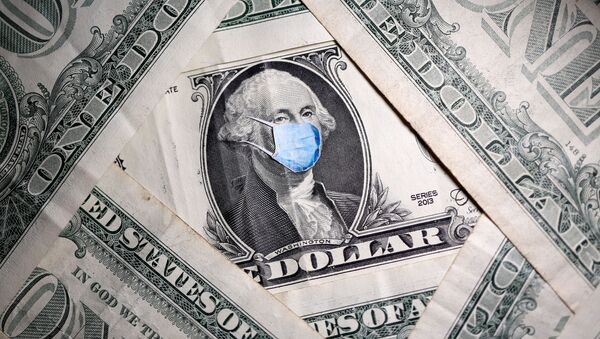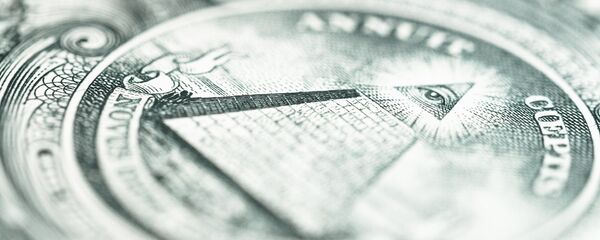The US national debt is close to exceeding $25 trillion after the White House introduced a massive $3 trillion relief package aimed at helping businesses and citizens affected by the coronavirus pandemic. At the same time, the debt threatens to exceed the country's GDP this year amid a drastic slowdown of the economy.
The current debt-to-GDP ratio amounts to 117%, according to the website usdebtclock.org, while the US Congressional Budget Office predicts a budget deficit of $3.7 trillion in 2020.
However, the ratio started rising even before the coronavirus erupted, businesses started to shut down across the US, and the White House issued its multi-trillion dollar aid package. Due to the POTUS slashing taxes, the country had to resort to more borrowings ahead of 2020 in order to maintain government spending. This did not leave the US in the best financial shape by the time the pandemic started, head of the Federal Reserve Jerome Powell admitted.
With the need to support the country's economy and citizens, the US now has to print even more money. This, in turn, might affect the dollar's value in the eyes of investors, the CEO of Zelwin, Nikolay Shkilev, suggested in an interview with Forbes.
"Now, a lot of people believe that the ‘issuance of new money’ is not provided with anything of value—which violates all economic laws. In fact, the printing of money could be equated to printing new candy wrappers. This is why it is inevitable that people will start looking for alternative sources of financing", Shkilev said.
But despite all that, continuing to boost government spending and thus printing might still be a good idea for the US during the coronavirus pandemic. Fed Chairman Powell namely noted that maintaining help to businesses is essential if the US wants to see a "robust recovery" once the pandemic ends.
World-famous investor and head of Berkshire Hathaway Warren Buffett agreed that continuing spending and borrowing for the sake of helping the economy is a good strategy, but warned of possible consequence if it's utilised incorrectly.
"I think in general they’re the right thing, but I don’t think they’re without consequences, and I think they could be of extreme consequences if pushed far enough. But there would be kind of extreme consequences if we didn’t do it as well", Buffett said in an interview with CNBC.




